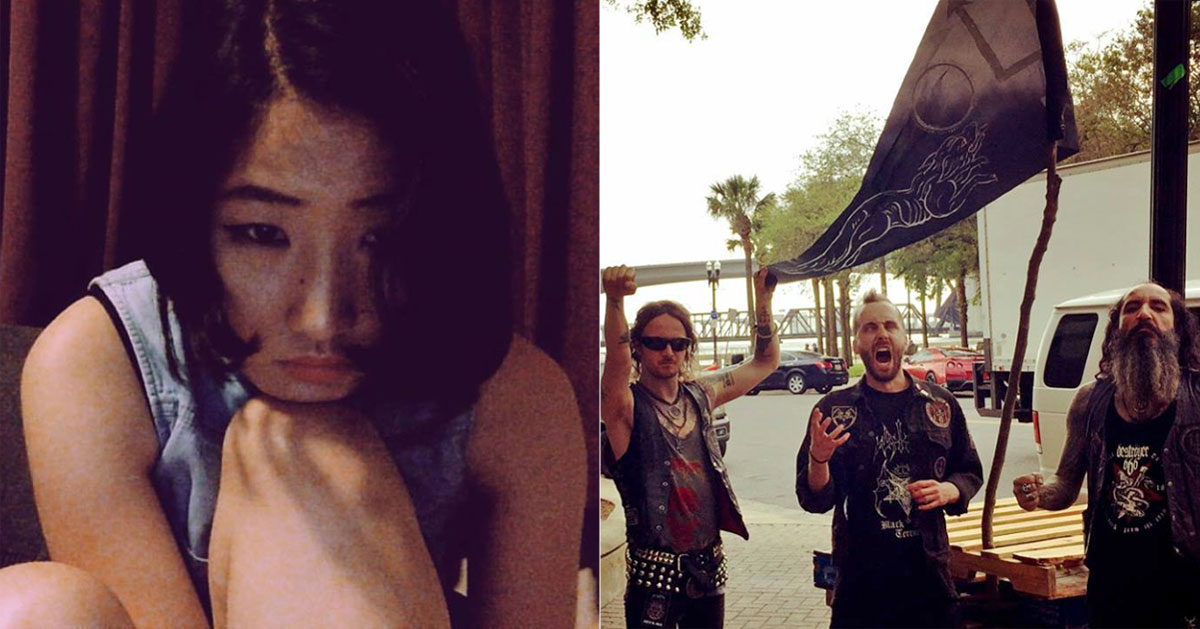What on Earth just happened in Singapore?
Singapore authorities decided to ban Watain, a Swedish metal band mere hours before it was scheduled to take the stage on March 7, 2019.
For fuller details, go to the end of article.
What was the reaction to the ban?
One band member, vocalist and bass guitarist Erik Danielsson, was asked if he was angry about the last-minute cancellation, and he replied that he was always angry.
Fans who showed up to the gig decked out in paraphernalia were disappointed as hell -- with some arriving from as far as Indonesia and Malaysia after forking out good money for the performance.
In the end, the band met and greeted with the fans who bought tickets and signed autographs as some form of consolation.
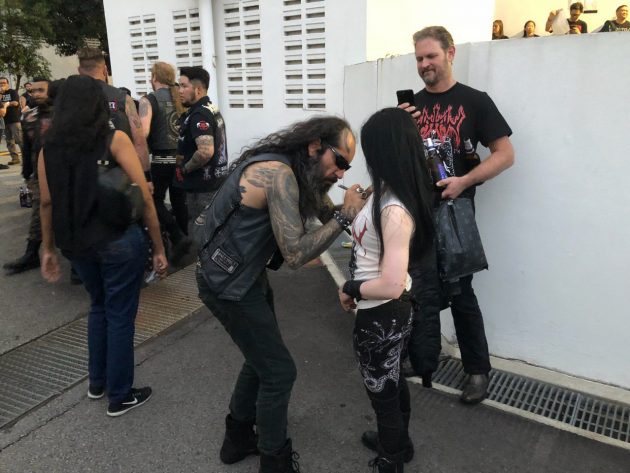
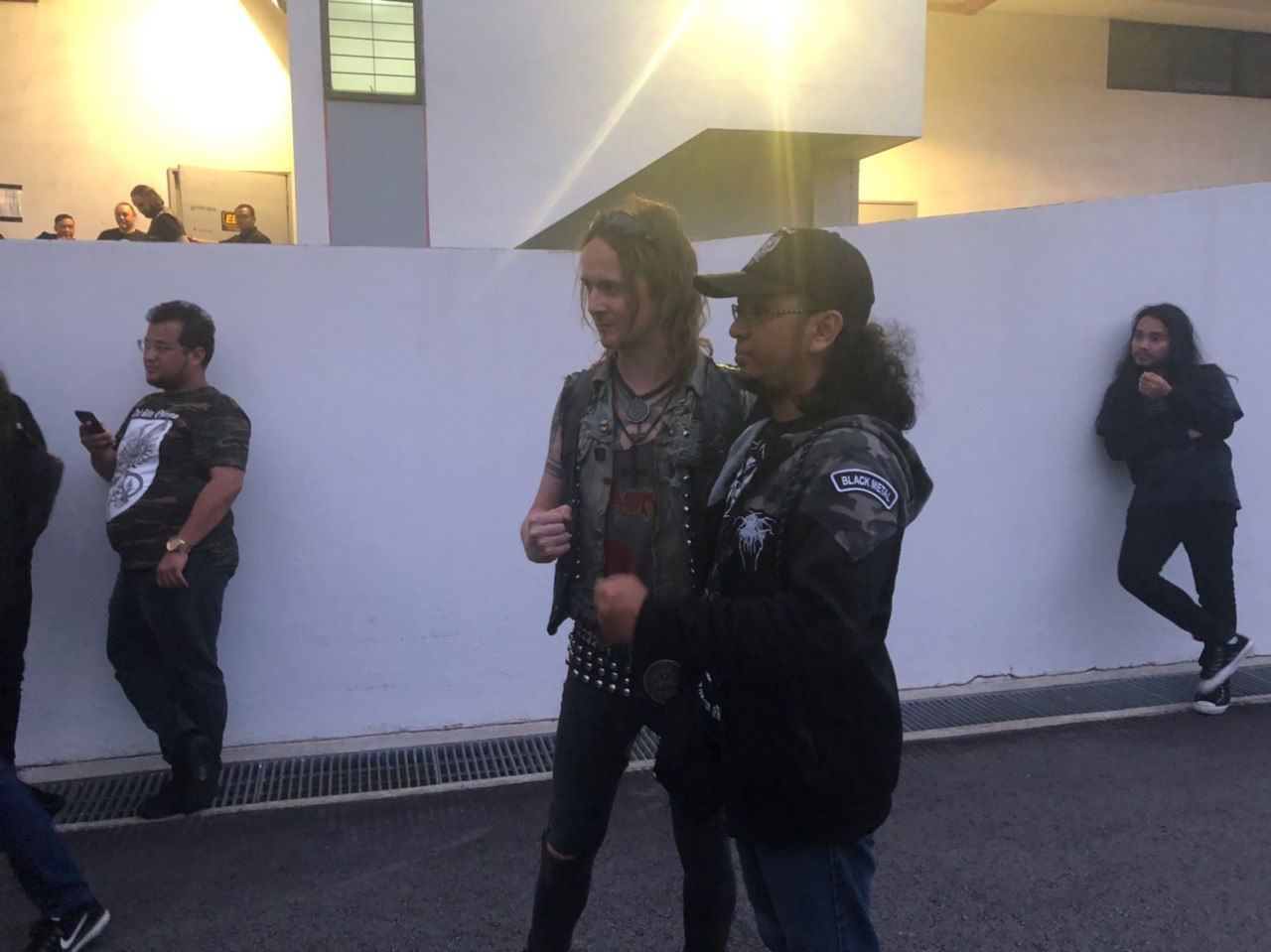
The larger Singaporean community responded in typical fashion: They were either up in arms and shaking their heads about the last-minute cancellation, or supportive of the ban.
But it is unclear what the split looks like between two opposing camps, or if they are evenly matched.
What is the most articulate response to the whole brouhaha so far?
Less than two hours after news broke that Watain would be banned, one musician in Singapore wrote a lengthy Facebook post articulating patiently and with utmost clarity what metal music is and is not.
She is Chew Wei Shan, an experimental and electronica musician, who is also known as weish, and part of electronic duo .gif (pronounced as "dot gif"), as well as more experimental outfit sub:shaman.What did she say?
Her views are legitimately well-thought out as she is an insider by virtue of being a consummate artiste and performer.
 via Chew Wei Shan Facebook
via Chew Wei Shan Facebook
To her, abruptly cancelling a metal concert because it is perceived to cause disruption to "social harmony" and "public order" is a misunderstanding of what metal is and is not.
To claim that metal is detrimental to our youths is displaying a lack of understanding of how beneficial metal can be and why.
How so is metal beneficial?
Metal, like other forms of expression and performance arts, can essentially be read as texts.
Texts, be it song lyrics accompanied by the heaviest riffs or a soliloquy written by Shakespeare, allows the audience to relate to its creator, as well as amongst the wider audience who partake of the work.
Expression of these sorts can be a powerful medium, as it transcends geography, time, age, ethnicity and cultures.
Instead of promoting self-harm among the young and troubled, Chew wrote that "the emotional catharsis heavy music provides helps them deal with and express their suicidal thoughts without actually committing suicide".
This relational aspect of music is powerful because of the "comfort and camaraderie of knowing that other people (even musicians halfway across the globe) are feeling the same dark thoughts".
Almost like self-help -- which is something a lot of youths in Singapore would be better off having, rather than doing without.
Are her claims valid?
Chew writes from an informed position of authority, not just in the field of music where she is a practitioner, but also as a former literature teacher who has taught and mingled with many young people in classrooms in Singapore.
Her writing also cites several psychology studies, including one that was published as recent as 2016, which "found that metal music allowed listeners to cope with their own mortality".
The reason cited in one study is due to how "metal identities were helping participants to survive the stress of challenging environments and build strong and sustained identities and communities".
This has the effect of "alleviating any potential mental health issues".
How does she explain the death cult optics of metal?
To paraphrase Chew but still sticking as closely as possible to what she wrote, the death cult optics and obsession with dark practices are both a reliance on theatrics (serving a performative function) and metaphors that should not be read literally and never taken at face value.
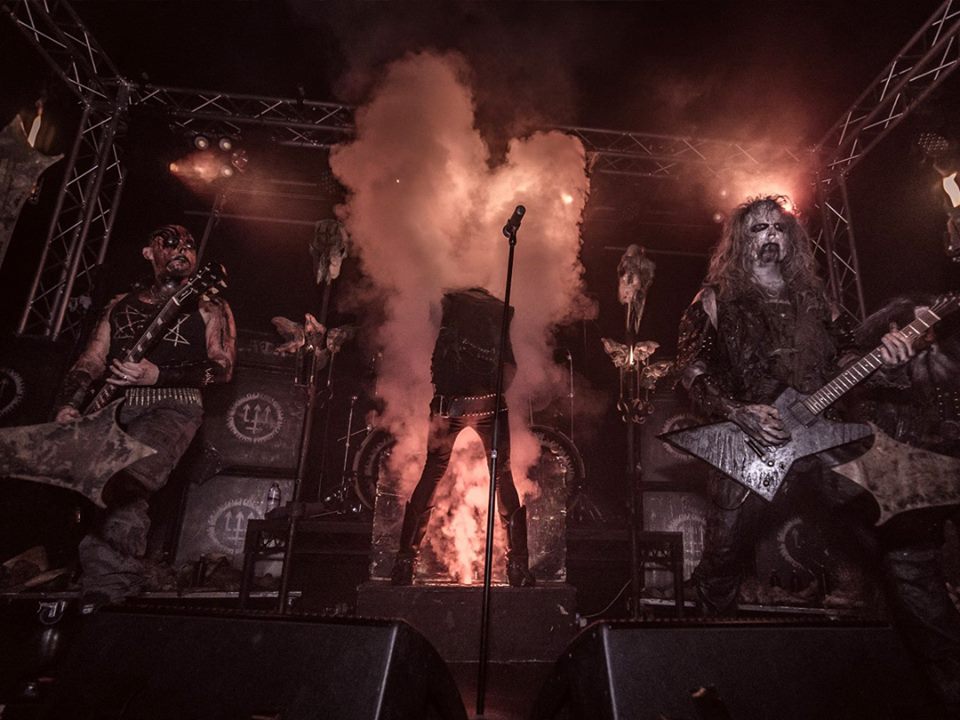 via Watain Facebook
via Watain Facebook
Chew revealed that her own sister is a metalhead, despite not looking the part at all as she is a baby-faced geek.
Chew also revealed that the metal community is always one of the warmest in terms of audiences looking out for one another during high-octane performances and inviting others to join in to be part of a wider group of people who appreciates this form of art.
What is her conclusion?
Chew ended her post with an appeal for sanity.
It is to ask the audience, fans or otherwise, to come to terms with metal or any art form with the perspective that there are "layers" and "nuances" that must be recognised for what it is.
Her views were subsequently validated
So, here's the funny thing.
After news broke that the Watain concert got cancelled, the band -- made up of a core group of three members -- got together with the fans at Tai Seng and did a meet-and-greet in lieu of their performance.
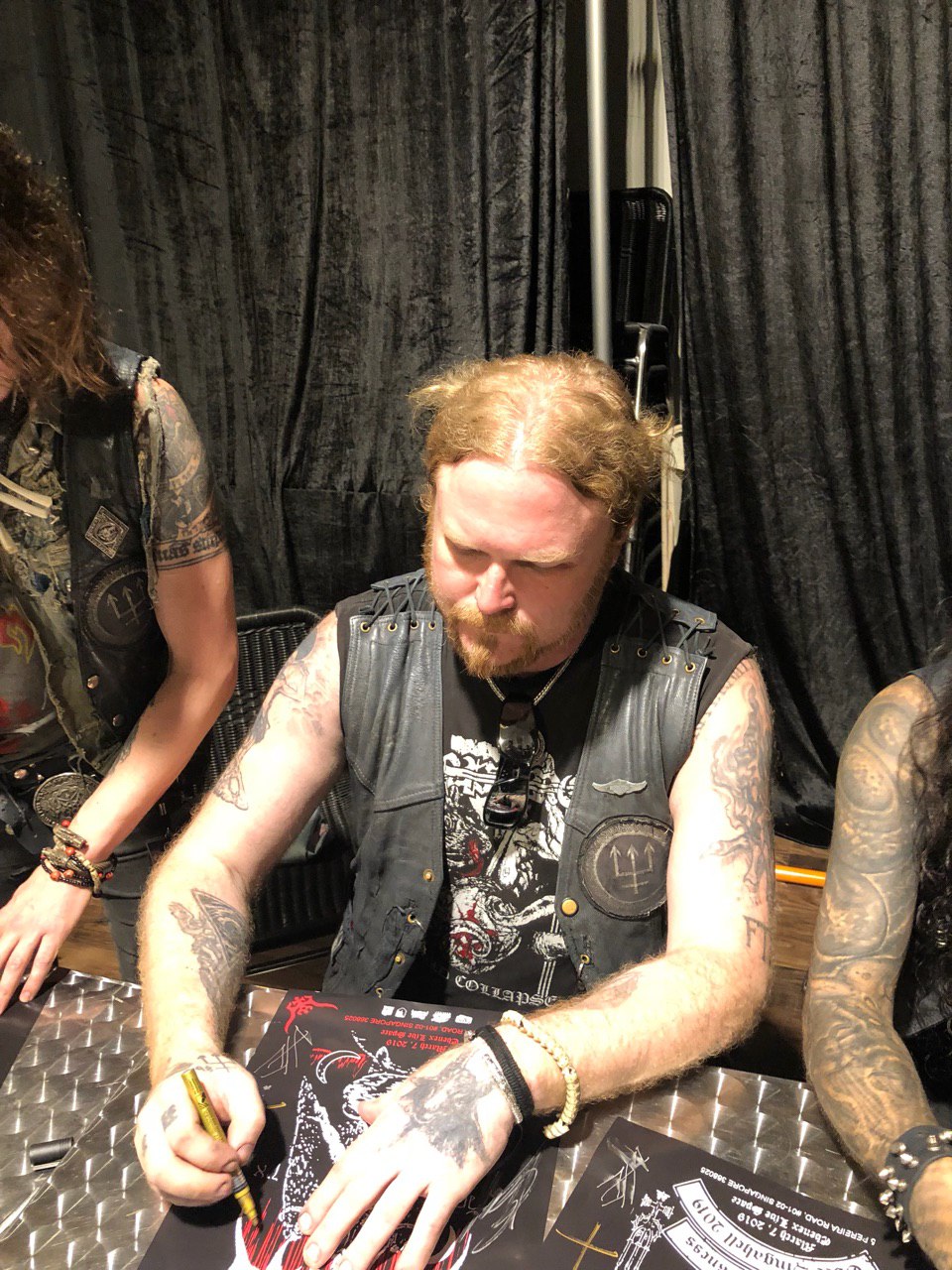


Essentially, a bearded group of hardcore musicians just decided to casually hang out with their fans in a way Maroon 5 wouldn't and couldn't.
This strange and fascinating optics just serves to highlight how close-knit and warm the musicians are in real-life, as compared to the persona they portray on stage -- with whatever shock and awe value they might want the audience to subscribe to.
Moreover, behind the theatrics, Watain is made up of musicians who are all consummate professionals -- besides being real musicians who write and perform their own material.
Before coming to Singapore, they did a bunch of shows across Japan:
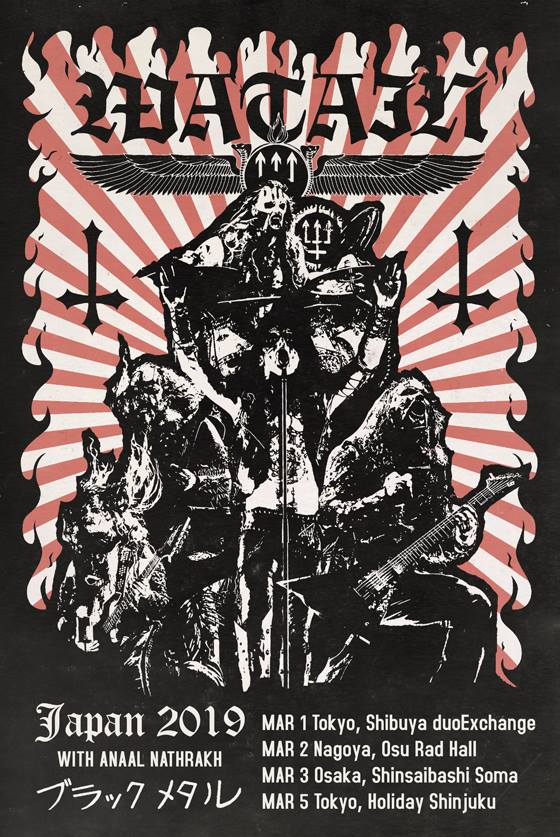
And before that, they were in Australia in the earlier part of 2019.
After leaving Singapore, they will be going to Bangkok, before heading back to Europe in late April to do shows in Finland, Russia and even Turkey -- home to modern secular Islam (or at least that's what the current regime wants to portray to the rest of the world).
In other words, Watain can be perceived as a band that left the comforts of their European home base, to traverse the globe in search of venues to showcase their brand of hard-driving music for people of any descent willing and able to pay to hear them play -- and eventually coming to Singapore in their leather wear, despite the tropical heat and humidity.
Why ban the band?
So, here's the fuller background.
The band, Watain, was supposed to play a gig in the industrial estate of Tai Seng to a crowd of fewer than 200 paying fans.
The band were allowed into Singapore in the first place, and were given a list of strict rules to follow -- such as not denigrating religions during their performance -- and the show was already given the green light by the Info-Communications Media Development Authority.
But the entire performance was canned subsequently with the band barred from taking the stage following a decision made by the Ministry of Home Affairs, which said it assessed the band to be a problem following feedback from the local community.
A petition had been circulated online a day before the concert, requesting those who disapproved of the metal band and its supposed death cult values to sign it.
The petition eventually received more than 17,000 signatures in one day -- although it has not been ascertained if the signatures were gathered as a result of astroturfing.
MHA said it made its decision independent of the petition.
But without a doubt, due to the Streisand effect, more people than ever in Singapore has come to know about Watain.
Watain's Nuclear Alchemy song put up on YouTube on Oct. 31, 2017, grew by several thousand views overnight after plateauing at 515,000 views -- undoubtedly as a result of Singaporeans and many abroad googling about the band following their ban here.
Watain chilling with fans in Singapore:
Top photo via Chew Wei Shan Facebook & Watain Facebook. All other photos by Sulaiman Daud & Andrew Koay.
If you like what you read, follow us on Facebook, Instagram, Twitter and Telegram to get the latest updates.
